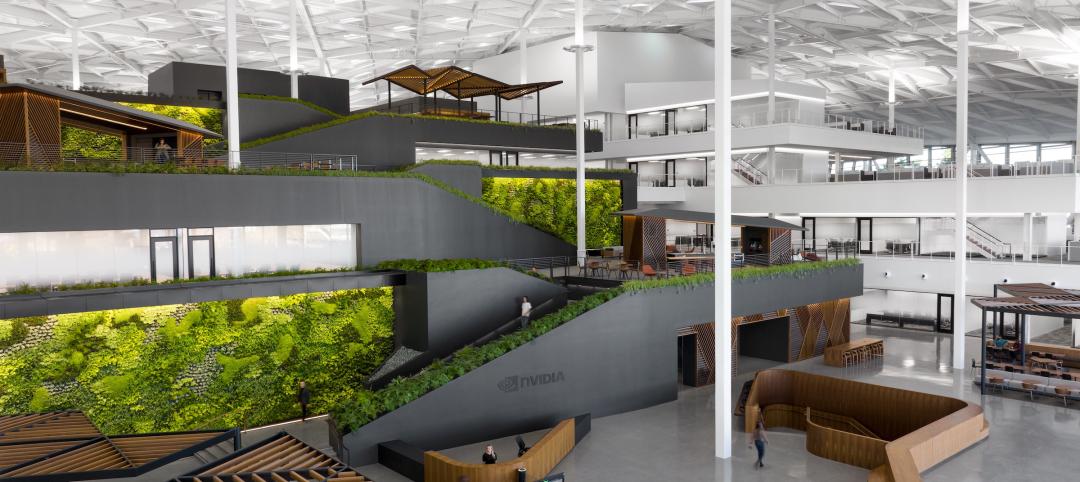International design and architecture firm Perkins Eastman recently announced the publication of its 2017 Survey on The State of Senior Living: “An Industry in Transition.” For this, the third in a series of industry surveys conducted by Perkins Eastman Research, led by Associate and Senior Design Researcher Emily Chmielewski EDAC, nearly 200 respondents from mostly not-for-profit life plan communities share their expertise and insights on five key issues that “keep them up at night”: Baby Boomer expectations, healthcare reform, staff recruitment and retention, for-profit competitive growth, and the needs of middle-income residents.
Some of the respondents’ feedback for “An Industry in Transition” was recorded at the 2016 LeadingAge Conference in Indianapolis, conducted at Perkins Eastman’s exhibition booth, in which a random sampling of senior living providers—mostly from the not-for-profit sector—volunteered to answer an on-the-spot survey question about the key issues facing the industry.
Further survey results and feedback revealed that, among the key focus areas being examined, staff recruitment and retention was the #1 concern among respondents. On this topic, many of those surveyed expressed unease toward how wages significantly outpaced job empowerment, benefits, and/or training, while as many as one in three respondents cited recent improvements in recruitment and retention with the help of job role empowerment interventions. Boomer expectations and healthcare reform were close seconds in terms of respondents’ chief concerns for their respective communities and the industry at large going forward.
The first two State of Senior Living surveys conducted by Perkins Eastman Research were published in 2009/10, in the immediate wake of the Great Recession, and in 2015, which was sub-titled “An Industry Poised for Change.” The reason for the relatively brief turnaround time between the second and third surveys has to do strategic alliances, in particular the expressed importance of partnering with healthcare providers. According to the Survey’s authors, “Our 2015 survey saw a remarkable gap between the current alignment with healthcare systems (29% had no relationship) and their belief that an alignment was in the future (74%). What a difference two years makes! Models involving strategic alliance, partnerships and primary referrals all saw significant growth” during this time.
As a rapidly aging Boomer population reevaluates its priorities going forward, and senior living models readjust to accommodate greater demand for everything from urban settings and intergenerational apartment environments to a la carte services for middle-income residents, the 2017 survey’s findings strongly indicate that strategic partnerships with healthcare systems is on the increase industry-wide. “Given some of the shifts in concerns and priorities, we believe [this latest] survey does speak for an industry already in transition and not just poised for change.”
“An Industry in Transition” is available for free download here.
Related Stories
Contractors | Sep 11, 2023
Construction industry skills shortage is contributing to project delays
Relatively few candidates looking for work in the construction industry have the necessary skills to do the job well, according to a survey of construction industry managers by the Associated General Contractors of America (AGC) and Autodesk.
Giants 400 | Sep 5, 2023
Top 80 Construction Management Firms for 2023
Alfa Tech, CBRE Group, Skyline Construction, Hill International, and JLL top the rankings of the nation's largest construction management (as agent) and program/project management firms for nonresidential buildings and multifamily housing work, as reported in Building Design+Construction's 2023 Giants 400 Report.
Giants 400 | Sep 5, 2023
Top 150 Contractors for 2023
Turner Construction, STO Building Group, DPR Construction, Whiting-Turner Contracting Co., and Clark Group head the ranking of the nation's largest general contractors, CM at risk firms, and design-builders for nonresidential buildings and multifamily buildings work, as reported in Building Design+Construction's 2023 Giants 400 Report.
Giants 400 | Aug 31, 2023
Top 35 Engineering Architecture Firms for 2023
Jacobs, AECOM, Alfa Tech, Burns & McDonnell, and Ramboll top the rankings of the nation's largest engineering architecture (EA) firms for nonresidential buildings and multifamily buildings work, as reported in Building Design+Construction's 2023 Giants 400 Report.
Giants 400 | Aug 22, 2023
Top 115 Architecture Engineering Firms for 2023
Stantec, HDR, Page, HOK, and Arcadis North America top the rankings of the nation's largest architecture engineering (AE) firms for nonresidential building and multifamily housing work, as reported in Building Design+Construction's 2023 Giants 400 Report.
Giants 400 | Aug 22, 2023
2023 Giants 400 Report: Ranking the nation's largest architecture, engineering, and construction firms
A record 552 AEC firms submitted data for BD+C's 2023 Giants 400 Report. The final report includes 137 rankings across 25 building sectors and specialty categories.
Giants 400 | Aug 22, 2023
Top 175 Architecture Firms for 2023
Gensler, HKS, Perkins&Will, Corgan, and Perkins Eastman top the rankings of the nation's largest architecture firms for nonresidential building and multifamily housing work, as reported in Building Design+Construction's 2023 Giants 400 Report.
Apartments | Aug 22, 2023
Key takeaways from RCLCO's 2023 apartment renter preferences study
Gregg Logan, Managing Director of real estate consulting firm RCLCO, reveals the highlights of RCLCO's new research study, “2023 Rental Consumer Preferences Report.” Logan speaks with BD+C's Robert Cassidy.
Apartments | Aug 14, 2023
Yardi Matrix updates near-term multifamily supply forecast
The multifamily housing supply could increase by up to nearly 7% by the end of 2023, states the latest Multifamily Supply Forecast from Yardi Matrix.
Sports and Recreational Facilities | Jul 26, 2023
10 ways public aquatic centers and recreation centers benefit community health
A new report from HMC Architects explores the critical role aquatic centers and recreation centers play in society and how they can make a lasting, positive impact on the people they serve.

















